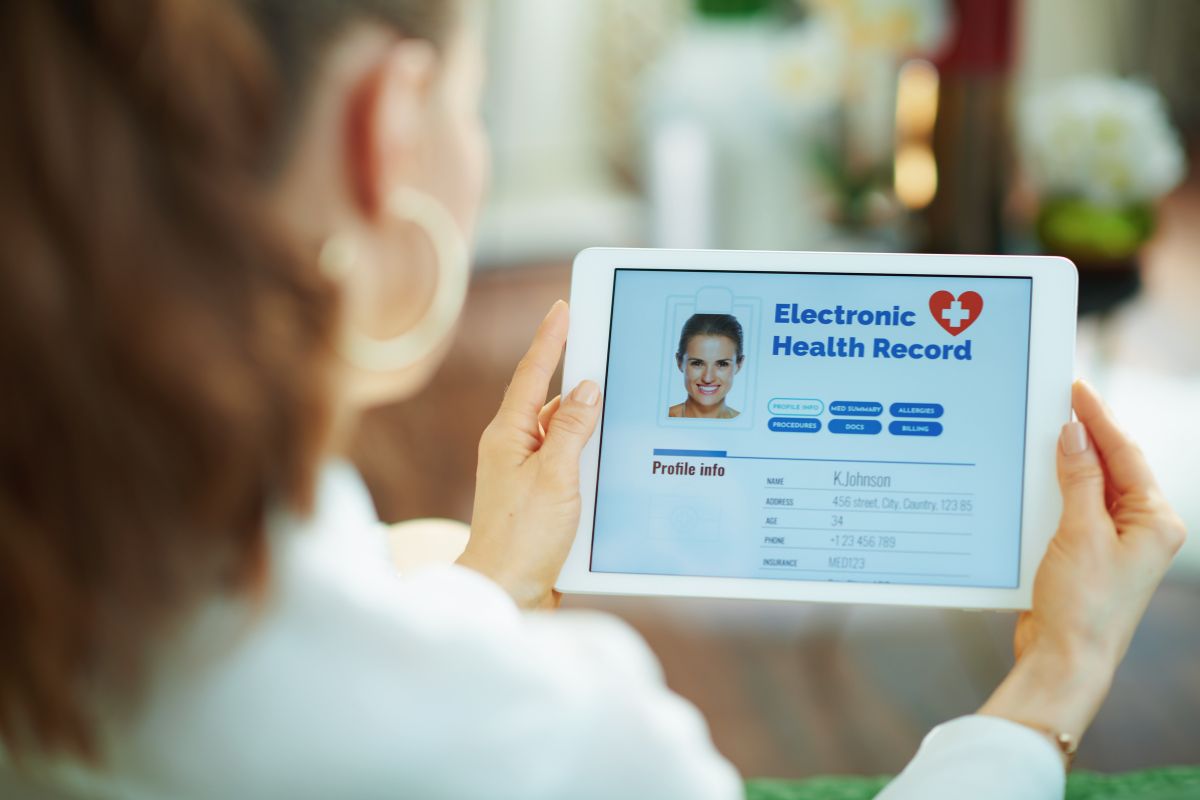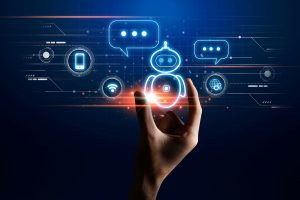AI is technology most important priority, and health care is its most urgent application, ~ Satya Nadella, CEO of Microsoft.
In the data-intensive realm of healthcare, EHRs have successfully transitioned traditional paper records into digital data, enabling easy access and storage of vital patient information, including patient profiles, test results, medical histories, and more.
However, a substantial portion of healthcare data remains unstructured. Textual reports, clinical notes, doctor’s observations, handwritten prescriptions, and other unstructured data often elude EHR systems.
Unstructured data is an inherent aspect of healthcare, but it holds substantial value. Therefore, the need to structure this data is paramount. However, the manual entry of such data into systems can result in administrative bottlenecks and, in critical situations, lead to potential delays.
Here’s where Natural Language Processing (NLP) takes center stage!
Integrating NLP into EHR software development is emerging as a prominent solution to bridge this gap. Natural Language Processing (NLP), a subset of artificial intelligence, is a potent tool to transform unstructured healthcare data into a structured and understandable format.
How Can NLP Integration in EHR Transform Medical Data Management?
Integrating NLP in custom software development for managing medical records can have a transformative impact. NLP empowers healthcare to efficiently harness and leverage vast amounts of new data that enhance patient outcomes, reduce expenses, and deliver a higher standard of care. Let’s understand how:
- Text Parsing: NLP algorithms analyze the structure and grammar of textual data, breaking it down into individual elements such as words, phrases, and sentences. This parsing process helps in identifying and extracting essential information.
- Entity Recognition: NLP can identify entities like medical terms, conditions, medications, and patient names within unstructured text. This recognition aids in categorizing and tagging data appropriately.
- Relationship Extraction: NLP can identify relationships between entities and concepts in textual data. For example, they can determine that a specific medication is prescribed to treat a particular medical condition.
- Sentiment Analysis: NLP can gauge the sentiment or tone of the text, which is particularly useful for assessing patient emotions, satisfaction levels, or healthcare provider sentiments.
- Contextual Understanding: NLP can consider the context in which terms or phrases are used. This helps in disambiguating words with multiple meanings and understanding the intended context.
- Language Translation: In multilingual healthcare settings, NLP can translate text from one language to another, ensuring that critical information is accessible to a broader range of users.
- Summarization: NLP can generate concise summaries of lengthy clinical notes and medical reports, making it easier for all stakeholders to grasp essential information quickly.
- Data Standardization: NLP can standardize data representation, such as medical codes and terminology, ensuring consistency and compatibility across different systems and institutions.
Benefits of Integrating NLP into the EHR
The integration of NLP in EHR offers several significant benefits to healthcare:
1. Enhanced Structure of Data
The first and foremost benefit of integrating NLP into an EHR system is getting structured data from an unstructured pile of clinical notes. Structuring the data makes organizing, searching, and retrieving patient information easier within the EHR. This structured data is crucial for consistency and data accuracy.
2. Voice Recognition and Dictation
NLP-powered voice recognition technology allows clinicians to dictate notes and instructions directly into EHRs, making the documentation process faster, more accurate, and more efficient. This can curb the risk of burnout among physicians and healthcare administrators.
3. Predictive Analytics
NLP plays a significant role in harnessing the power of predictive analytics in healthcare. This robust technology aids in extracting insights and patterns from structured and unstructured clinical notes and patient records. NLP can help healthcare organizations predict and prevent adverse events, manage chronic conditions, and allocate resources efficiently.
4. Medical Record Summarization
Generating correct medical record summaries is of paramount importance in healthcare. Medical records can aid decision-making, processing insurance claims, and medicolegal matters. NLP algorithms can distill complex and extensive medical information into easily digestible and informative summaries.
5. Improved Clinical Decision Support
It is highly valuable in the analysis of extensive patient data. The technology can generate precise medical summaries of a patient and highlight important patterns or symptoms in their health parameters. This enhances clinicians’ abilities in diagnosing conditions, predicting outcomes, and formulating effective treatment strategies.
6. Higher Patient Engagement
It can generate personalized educational materials and give patients more precise explanations of their medical conditions and treatment plans, increasing patient understanding and engagement.
7. Interoperability
It bridges the gap between EHR systems, facilitating data exchange and standardizing data formats. This promotes interoperability among healthcare providers, allowing for more seamless patient care coordination.
8. Compliance and Reporting
It assists in automating the process of coding and billing, ensuring that clinical notes are translated into appropriate billing codes. This can improve billing accuracy, reduce audit risks, and support compliance with regulatory requirements.
Conclusion
Integrating NLP into Electronic Health Record (EHR) software marks a significant leap toward a more efficient, intelligent, and patient-centric healthcare system. it empowers healthcare providers to extract valuable insights from textual data, streamline administrative tasks, and enhance the quality of patient care.
Thus, we can say that NLP can transform EHR automation from a burden to a blessing, impacting everything from advanced medical applications to routine billing processes. To harness the full potential of EHR automation, healthcare institutions should explore NLP’s potential applications and use cases.











